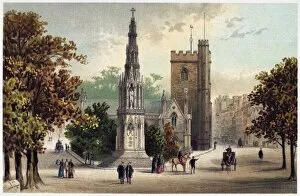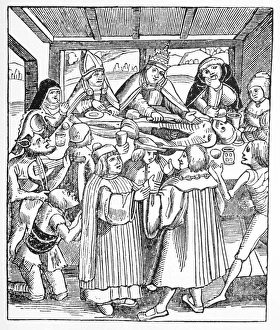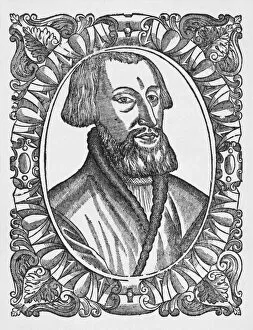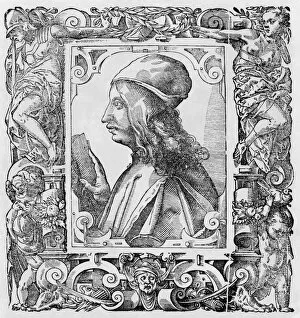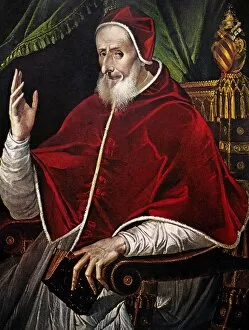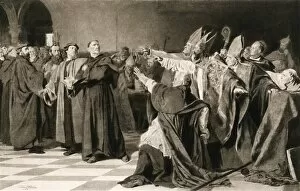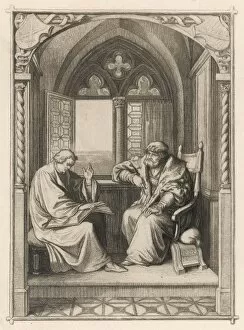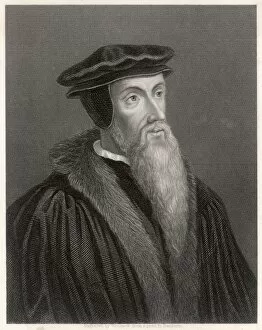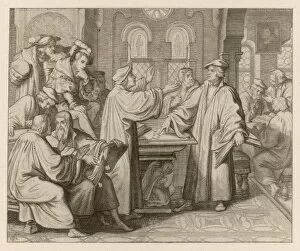Reformation Collection (page 32)
The Reformation: A Revolutionary Movement in Religious History The Reformation, led by Martin Luther
All Professionally Made to Order for Quick Shipping
The Reformation: A Revolutionary Movement in Religious History The Reformation, led by Martin Luther, was a pivotal moment in religious history that forever changed the course of Christianity. In 1517, Luther boldly nailed his 95 Theses to the door of the Castle Church in Wittenberg, Germany, sparking a wave of dissent against the corrupt practices of the Catholic Church. Luther's defense before Holy Roman Emperor Charles V at the Diet in Worms in April 1521 showcased his unwavering commitment to challenging established norms and seeking spiritual truth. This iconic event is immortalized through a line engraving from the 19th century, capturing Luther's courageous stand against religious authority. As Luther's ideas gained momentum across Europe, other influential figures emerged. John Calvin played a significant role with his theological teachings and leadership in Geneva. His impact on Protestantism cannot be overstated as he advocated for reforming church practices and emphasizing individual faith. Satirical depictions mocking Martin Luther highlight both opposition and fascination with this movement. The illustration "Fleisch macht Fleisch" (Meat Gives Meat) from 1555 reflects societal reactions to Luther's views on fasting during Lent – an example of how deeply ingrained traditions were challenged during this period. Meanwhile, William Tyndale contributed immensely to spreading Reformation ideals by translating the Bible into English so that common people could access it directly without relying solely on clergy interpretation. In England, Henry VIII's desire for divorce sparked further reformation efforts resulting in England breaking away from papal authority. This marked another significant chapter within this transformative movement. The Reformation was not just about theological debates; it had profound social and political implications as well. It reshaped societies across Europe and ignited discussions about power structures within religion and government alike. Today we remember these brave individuals like Martin Luther who fearlessly stood up against corruption while risking their lives for what they believed was right.




